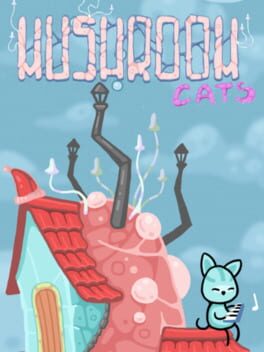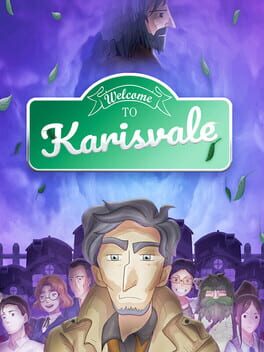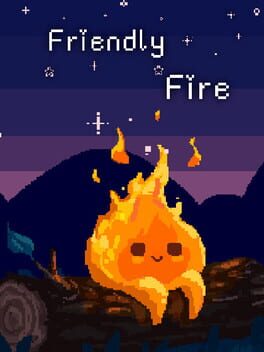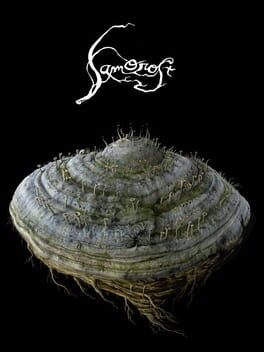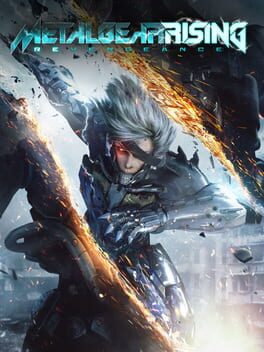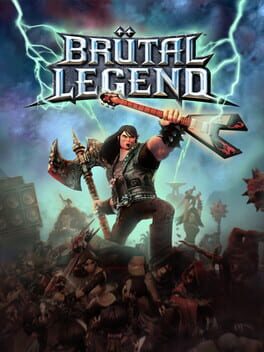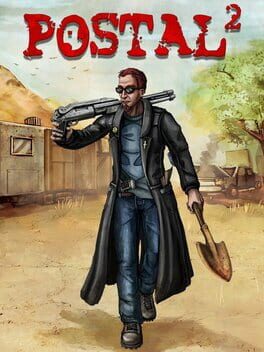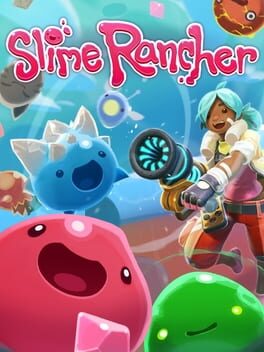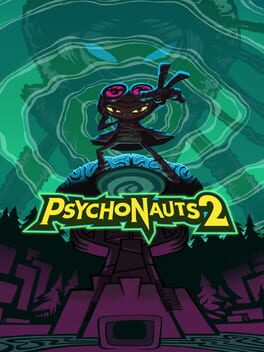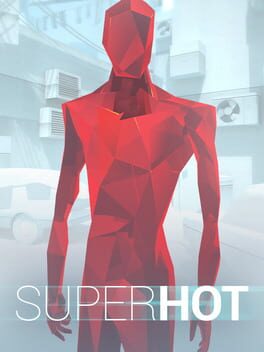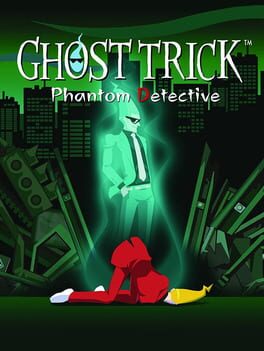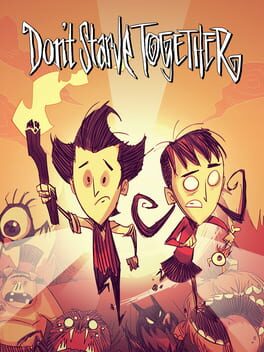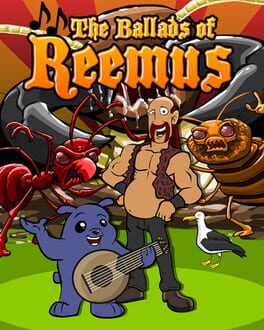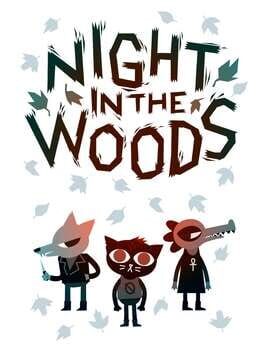Nazo_KG
2019
2022
A game with a lot of heart and wittiness, Karisvale puts you in the shoes of a private investigator named Shaymus, who is called to a small town in search of a missing person.
There is plenty of nooks and crannies to explore in the game, as well as collectibles to find, it was very fun searching for them. You speak with the citizens to find clues, and along the way there is a puzzle or two to pick your brain at.
The game looks very nice, with a cozy pixel art style boasting bright colouration and hand-drawn character portraits.
Unfortunately, there is no save feature but it is not a big deal as the game can be completed in one sitting (~45 mins).
The characters you meet are very lively and infused with snappy, witty writing.
To top all of this off, the story has a very cool twist that caught me off guard.
Karisvale is a very well-made mystery game, especially for it being free.
Can't recommend enough!
There is plenty of nooks and crannies to explore in the game, as well as collectibles to find, it was very fun searching for them. You speak with the citizens to find clues, and along the way there is a puzzle or two to pick your brain at.
The game looks very nice, with a cozy pixel art style boasting bright colouration and hand-drawn character portraits.
Unfortunately, there is no save feature but it is not a big deal as the game can be completed in one sitting (~45 mins).
The characters you meet are very lively and infused with snappy, witty writing.
To top all of this off, the story has a very cool twist that caught me off guard.
Karisvale is a very well-made mystery game, especially for it being free.
Can't recommend enough!
2021
2020
Friendly Fire is a short but entertaining ride through a nonsensical and fun world filled with oddball characters.
It's very charming, and what it lacks in content, it makes up for with its personality and quirky humour.
The game overall looks nice with its pixel art and the music is very good as well, I really enjoyed the ending credits song!
Although you can complete the game quickly, apparently there's multiple endings you can get, which is really cool.
I don't have any complaints here, and for a free game, you cannot go wrong it.
It's very charming, and what it lacks in content, it makes up for with its personality and quirky humour.
The game overall looks nice with its pixel art and the music is very good as well, I really enjoyed the ending credits song!
Although you can complete the game quickly, apparently there's multiple endings you can get, which is really cool.
I don't have any complaints here, and for a free game, you cannot go wrong it.
2003
TL;DR: Hack and slasher at blistering speed with a kickass soundtrack following your every step.
-----------------------------------------------------------------------------------------
A genuinely exhilarating hack and slasher that bellies a surprising amount of depth on all fronts.
The combat revels in its brutality, all at the pace of blistering speed and delivers super satisfying stunts and visual effects that accompany it.
It feels fantastic to master the combat system, and even when at first you struggle with a boss or enemy, once you revisit it and unleash all your fledged skills, you feel like a force of nature itself.
Additionally, you can unlock different weapons as you make progress, all of which have a distinct battle style and different skills you can upgrade.
The game's main mechanic that you use all the time is its slicing attacks. You are able to cut up your enemies into tiny bits using Blade Mode, which is enabled by an energy gauge refilled by attacking enemies. That same mechanic can be used on a number of objects throughout the game, including building columns, furniture, soda dispensers, you name it...
This is a game where a blade ACTUALLY cuts!
It would be an understatement to say that MGR:R's story, or rather its characters, is a thing that the game is renowned for.
Even though the story often doesn't take itself seriously, it also has moments of soberiety among its storm of absurdity and comical relief where it manages to ask nuanced questions, and shed light on topics that would be more fitting among the original series this game was derived from.
The protagonist, Raiden, has intriguing character development throughout the story, even to those not familiar with the character from previous installments. The story in this game entails his mission to take down a group of terrorists that have intentions involving something that he has a personal vendetta for, an agonizing reminder to his past.
Minor spoiler: The theme of the game is "we are the same, you and I" and about accepting oneself. The bosses each represent an aspect of himself that Raiden has to tame and take control of.
MGR:R is also known very well for one other thing...its soundtrack!
The game's soundtrack and sound design in general is absolutely fantastic and embelishes an already great video game.
There is a selection of vocal tracks, among which most of them belong to bosses; but the way they are used in the boss fights is remarkable.
Basically, the first phase of a boss fight uses the instrumental version of the song, but after you lay down enough damage, the song's vocals kick in for the second phase.
This build up is incredible, and it's almost like a straight adrenaline shot; I wish more games did this.
What's also cool about the boss themes is that each of them tell a story or give you more background information about the characters themselves and what their motivations are, and maybe even why.
The soundtrack itself is a body of hybrid electronic-rock tracks, some of them even have orchestral accompaniment, and some of the songs also have remixed versions called Low Key versions, which are used in different scenarios adjusting to when you sneak around enemies.
The game has very good replay value; Difficulty modes to unlock through completing previous ones, collectibles/secrets, extra missions, two separate DLC stories, unlockable gear, etc. etc.
Point is, there is a lot to do in the game even after you beat the main story campaign, and even though its runtime (around 8 hours) is short, the extra content more than makes up for it.
The only complaint I have about the game, is the camera.
The camera will, in all honesty, probably be your worst enemy on the field; The game gives you a parry move that you have to perform in the direction of the enemy attacking for it to work. But the game doesn't always do a good job of showing you everything you need to see, hence it can be frustrating to get knocked down because of something that was not shown in your FOV.
I also think the FOV is very zoomed in, almost too much sometimes for good readability of your surroundings.
For a lot of people, the camera system is a huge problem, but when you're really into the action on-screen, it is possible to look past this flaw.
A fantastic game all around with a few problems, but overall, it's simply awesome.
-----------------------------------------------------------------------------------------
A genuinely exhilarating hack and slasher that bellies a surprising amount of depth on all fronts.
The combat revels in its brutality, all at the pace of blistering speed and delivers super satisfying stunts and visual effects that accompany it.
It feels fantastic to master the combat system, and even when at first you struggle with a boss or enemy, once you revisit it and unleash all your fledged skills, you feel like a force of nature itself.
Additionally, you can unlock different weapons as you make progress, all of which have a distinct battle style and different skills you can upgrade.
The game's main mechanic that you use all the time is its slicing attacks. You are able to cut up your enemies into tiny bits using Blade Mode, which is enabled by an energy gauge refilled by attacking enemies. That same mechanic can be used on a number of objects throughout the game, including building columns, furniture, soda dispensers, you name it...
This is a game where a blade ACTUALLY cuts!
It would be an understatement to say that MGR:R's story, or rather its characters, is a thing that the game is renowned for.
Even though the story often doesn't take itself seriously, it also has moments of soberiety among its storm of absurdity and comical relief where it manages to ask nuanced questions, and shed light on topics that would be more fitting among the original series this game was derived from.
The protagonist, Raiden, has intriguing character development throughout the story, even to those not familiar with the character from previous installments. The story in this game entails his mission to take down a group of terrorists that have intentions involving something that he has a personal vendetta for, an agonizing reminder to his past.
Minor spoiler: The theme of the game is "we are the same, you and I" and about accepting oneself. The bosses each represent an aspect of himself that Raiden has to tame and take control of.
MGR:R is also known very well for one other thing...its soundtrack!
The game's soundtrack and sound design in general is absolutely fantastic and embelishes an already great video game.
There is a selection of vocal tracks, among which most of them belong to bosses; but the way they are used in the boss fights is remarkable.
Basically, the first phase of a boss fight uses the instrumental version of the song, but after you lay down enough damage, the song's vocals kick in for the second phase.
This build up is incredible, and it's almost like a straight adrenaline shot; I wish more games did this.
What's also cool about the boss themes is that each of them tell a story or give you more background information about the characters themselves and what their motivations are, and maybe even why.
The soundtrack itself is a body of hybrid electronic-rock tracks, some of them even have orchestral accompaniment, and some of the songs also have remixed versions called Low Key versions, which are used in different scenarios adjusting to when you sneak around enemies.
The game has very good replay value; Difficulty modes to unlock through completing previous ones, collectibles/secrets, extra missions, two separate DLC stories, unlockable gear, etc. etc.
Point is, there is a lot to do in the game even after you beat the main story campaign, and even though its runtime (around 8 hours) is short, the extra content more than makes up for it.
The only complaint I have about the game, is the camera.
The camera will, in all honesty, probably be your worst enemy on the field; The game gives you a parry move that you have to perform in the direction of the enemy attacking for it to work. But the game doesn't always do a good job of showing you everything you need to see, hence it can be frustrating to get knocked down because of something that was not shown in your FOV.
I also think the FOV is very zoomed in, almost too much sometimes for good readability of your surroundings.
For a lot of people, the camera system is a huge problem, but when you're really into the action on-screen, it is possible to look past this flaw.
A fantastic game all around with a few problems, but overall, it's simply awesome.
2009
Brutal Legend is a unique, fun game with a few glaring issues.
PROS:
- It oozes charm and personality, and is a wet dream for every metalhead that also likes video games.
- Elephant in the room - soundtrack is KILLER. I stay on the main menu for 10 minutes sometimes because I'm too immersed in the song to press start!
Plus, this game introduced me to a few new bands/songs that I didn't know about or wasn't familiar with.
- The art style is quite good. It maybe won't blow your socks off, but it's very fun-looking and does the job for the game.
I personally enjoyed the stylisation of the characters and graphical fx, UI, etc.
- VOICE ACTORS!! Quite a few of the characters in this game are voiced by metal gods like Lemmy and Ozzy Osbourne, and the titular character, Eddie, is voiced by Jack Black.
All around, great performances and lots to be entertained by.
- And of course, it's made by Double Fine, the same folks who made the cult classic Psychonauts. If you like their games, I doubt you will dislike this one, even if you don't listen to metal.
- Lots to do. Besides the main missions, you can go explore the rest of the world and do side quests, or, if you're a completionist, then there are these dragon statues that you have to free (Kinda like Spyro except they don't talk or anything lol), they give you health upgrades, power upgrades etc. for every 10 statues you free.
You can also go look for guitar tabs hidden throughout the world which give you new guitar riffs to play that have cool effects, like one is literally summoning a giant crashing, burning blimp to rain down fire on your enemies!
CONS:
-RTS strategy gameplay.
The game starts out tricking you into thinking this will be a hack-and-slash game like God of War but turns into an RTS type of game very early shortly after you complete the first 15-20 mins of gameplay.
This can either be a pro or con for you, depending on how much you like the genre. I personally didn't mind it that much, and to be honest, if you like the game's aesthetics, personality and other aspects, then the AI tends to be very dumb throughout the majority of the game anyway so you can brute-force the gameplay by spamming different troops and upgrading your stage as often as you can.
- Weak/Unnecessary Open World
To be honest, I feel like Brutal Legend didn't need to be an open world game. Apart from letting you explore to find some collectibles and to be able to appreciate the environment design in detail, it doesn't do much with the formula, and at times, feels really unnecessary.
- Story
There is a story throughout the game that you follow but it's very lackluster and you'll mostly want to go through it just to see the character interactions rather than properly being invested in the plot. This is a weak aspect of the game but it can be forgiven thanks to everything else it offers.
- Bugs
This is an open world-esque game, where you can go to different areas whenever you like, which means that bugs are almost unavoidable at some point. Even so, the ones I encountered are very mild and were stuff like clipping through objects or floor and other minor stuff like that so it's nothing game-breaking or anything, but you might find something acting a bit odd here and there when you're playing through the game.
All in all, not a perfect game but in my eyes, it offers enough things to keep you interested and makes up for its flaws with its unique setting and personality. Hope it'll get a sequel one day..! :)
PROS:
- It oozes charm and personality, and is a wet dream for every metalhead that also likes video games.
- Elephant in the room - soundtrack is KILLER. I stay on the main menu for 10 minutes sometimes because I'm too immersed in the song to press start!
Plus, this game introduced me to a few new bands/songs that I didn't know about or wasn't familiar with.
- The art style is quite good. It maybe won't blow your socks off, but it's very fun-looking and does the job for the game.
I personally enjoyed the stylisation of the characters and graphical fx, UI, etc.
- VOICE ACTORS!! Quite a few of the characters in this game are voiced by metal gods like Lemmy and Ozzy Osbourne, and the titular character, Eddie, is voiced by Jack Black.
All around, great performances and lots to be entertained by.
- And of course, it's made by Double Fine, the same folks who made the cult classic Psychonauts. If you like their games, I doubt you will dislike this one, even if you don't listen to metal.
- Lots to do. Besides the main missions, you can go explore the rest of the world and do side quests, or, if you're a completionist, then there are these dragon statues that you have to free (Kinda like Spyro except they don't talk or anything lol), they give you health upgrades, power upgrades etc. for every 10 statues you free.
You can also go look for guitar tabs hidden throughout the world which give you new guitar riffs to play that have cool effects, like one is literally summoning a giant crashing, burning blimp to rain down fire on your enemies!
CONS:
-RTS strategy gameplay.
The game starts out tricking you into thinking this will be a hack-and-slash game like God of War but turns into an RTS type of game very early shortly after you complete the first 15-20 mins of gameplay.
This can either be a pro or con for you, depending on how much you like the genre. I personally didn't mind it that much, and to be honest, if you like the game's aesthetics, personality and other aspects, then the AI tends to be very dumb throughout the majority of the game anyway so you can brute-force the gameplay by spamming different troops and upgrading your stage as often as you can.
- Weak/Unnecessary Open World
To be honest, I feel like Brutal Legend didn't need to be an open world game. Apart from letting you explore to find some collectibles and to be able to appreciate the environment design in detail, it doesn't do much with the formula, and at times, feels really unnecessary.
- Story
There is a story throughout the game that you follow but it's very lackluster and you'll mostly want to go through it just to see the character interactions rather than properly being invested in the plot. This is a weak aspect of the game but it can be forgiven thanks to everything else it offers.
- Bugs
This is an open world-esque game, where you can go to different areas whenever you like, which means that bugs are almost unavoidable at some point. Even so, the ones I encountered are very mild and were stuff like clipping through objects or floor and other minor stuff like that so it's nothing game-breaking or anything, but you might find something acting a bit odd here and there when you're playing through the game.
All in all, not a perfect game but in my eyes, it offers enough things to keep you interested and makes up for its flaws with its unique setting and personality. Hope it'll get a sequel one day..! :)
2003
A beloved yet controversial title that leapt and flew to heights where its predecessor could not.
In stark comparison to the previous installment, this sarcasm-laced sandbox trifler is chock-full of cynical humour and an exceptional bite for you buck..erm, bang for your buck!
The game hands you the reins to a great amount of freedom to choose whatever you want to do, however you want to do it, all while playing into its own ridiculousness and exaggerations.
The game can technically be played non-violently as it involves doing seemingly ordinary chores, such as picking up milk or getting residents to sign your petition.
However, Postal 2 makes doing these mundane chores so tediously ordinary that you will likely crack and attempt doing them in the twisted, crazy route. And the spontaneous and volatile nature of this game plays perfectly into the gameplay and progressions according to the player's style.
Whether it's playing fetch with your dog using a severed head, using a cat as a gun silencer or raining down hell in the town with a rocket launcher, Postal 2 gives you the tools and the freedom to explore and problem solve at your fingertips from the get-go, and rewards you for thinking outside the box.
All while pulling a smirk and uttering "I regret nothing."
In stark comparison to the previous installment, this sarcasm-laced sandbox trifler is chock-full of cynical humour and an exceptional bite for you buck..erm, bang for your buck!
The game hands you the reins to a great amount of freedom to choose whatever you want to do, however you want to do it, all while playing into its own ridiculousness and exaggerations.
The game can technically be played non-violently as it involves doing seemingly ordinary chores, such as picking up milk or getting residents to sign your petition.
However, Postal 2 makes doing these mundane chores so tediously ordinary that you will likely crack and attempt doing them in the twisted, crazy route. And the spontaneous and volatile nature of this game plays perfectly into the gameplay and progressions according to the player's style.
Whether it's playing fetch with your dog using a severed head, using a cat as a gun silencer or raining down hell in the town with a rocket launcher, Postal 2 gives you the tools and the freedom to explore and problem solve at your fingertips from the get-go, and rewards you for thinking outside the box.
All while pulling a smirk and uttering "I regret nothing."
2017
Slime Rancher is, simply put, a delightfully wholesome and lovingly put together game.
Underneath the seemingly straightforward, adorable exterior is a surprisingly deep and involved gameplay loop of managing a farm of slimes to make money which in turn can be used to purchase upgrades, items and much more, such as a gadget workshop.
There are many areas and biomes(?) to unlock and explore, and it's very exciting to find and learn about new types of slimes as you come across them.
The artstyle is very cute and uses vivid, bright saturated colours and simple textures most of the time. From my experience, it's also not too taxing on the GPU, it runs well on a variety of hardware.
The writing takes a backseat in this game in the way that it's there in the letters from a friend you receive, or as you talk to the sparse few other characters in this game. It's serviceable at best, and at worst, it's forgettable.
On the other hand, the descriptors each item/resource and slimes have can be interesting and give some more (funny) insight into some of the slimes.
I think this is a very good game for those afternoons/evenings where you want to play something relaxing and not too straining, it's perfect for that.
All in all, a very well-rounded title with an addictive gameplay loop and a good amount of content.
Underneath the seemingly straightforward, adorable exterior is a surprisingly deep and involved gameplay loop of managing a farm of slimes to make money which in turn can be used to purchase upgrades, items and much more, such as a gadget workshop.
There are many areas and biomes(?) to unlock and explore, and it's very exciting to find and learn about new types of slimes as you come across them.
The artstyle is very cute and uses vivid, bright saturated colours and simple textures most of the time. From my experience, it's also not too taxing on the GPU, it runs well on a variety of hardware.
The writing takes a backseat in this game in the way that it's there in the letters from a friend you receive, or as you talk to the sparse few other characters in this game. It's serviceable at best, and at worst, it's forgettable.
On the other hand, the descriptors each item/resource and slimes have can be interesting and give some more (funny) insight into some of the slimes.
I think this is a very good game for those afternoons/evenings where you want to play something relaxing and not too straining, it's perfect for that.
All in all, a very well-rounded title with an addictive gameplay loop and a good amount of content.
2021
Psychonauts 2 was considered to be a pipe dream for a considerable amount of time, but even with everything that could've gone wrong with the development of it, including navigating through a crowdfunding controversy, it finally came to fruition.
This sequel more than lives up to its previous iteration; finetuned mechanics and PSI powers, fluid and transcendent level design, painstaking attention to detail and even a reworked combat system.
All this accompanied by gorgeous, crisp graphics infused with the faithfully recreated art style from the first game.
The characters are brought to life by fantastic animation work and top-notch voice acting, featuring most of the original cast.
Psychonauts's concept of exploring minds is realised in a rapturous and engrossing way through many of its assets at hand.
It embraces its old ways of tackling heavy topics that are weaven into the narrative so well, they never feel overwhelming or patronizing, both this and the previous entry perfectly understand subtlely and respect for its themes.
Although this game can be enjoyed without having played the first game, there is a wealth of easter eggs and references to the first game that old fans will delight in.
Overall, a showstopper of a platformer; beautiful, clear-cut and expressive.
This sequel more than lives up to its previous iteration; finetuned mechanics and PSI powers, fluid and transcendent level design, painstaking attention to detail and even a reworked combat system.
All this accompanied by gorgeous, crisp graphics infused with the faithfully recreated art style from the first game.
The characters are brought to life by fantastic animation work and top-notch voice acting, featuring most of the original cast.
Psychonauts's concept of exploring minds is realised in a rapturous and engrossing way through many of its assets at hand.
It embraces its old ways of tackling heavy topics that are weaven into the narrative so well, they never feel overwhelming or patronizing, both this and the previous entry perfectly understand subtlely and respect for its themes.
Although this game can be enjoyed without having played the first game, there is a wealth of easter eggs and references to the first game that old fans will delight in.
Overall, a showstopper of a platformer; beautiful, clear-cut and expressive.
2016
Fast, frantic, and calculative.
Superhot bases its whole concept on a very simple principle - Time only moves when you do.
The pacing of the gameplay allows for multiple approaches and playstyles to each mission - Take it on at brutal and breakneck speed, or weave in and out with strategic and calculative attacks.
The slowing of time gives a much needed breather sometimes to plan out your next move, even amidst a storm of bullets.
In addition to this mechanic, the player can use various melee weapons and firearms by obtaining them from the enemies.
Each weapon has a different feel and can be the difference between life and death.
All can be thrown, even guns with empty magazines, which can be used to stun enemies and create an opening.
There is very little to no music, but in turn, that absence allows the sound design itself to truly shine;
The sound of the enemies shattering and all their fragments falling to the floor, the guns having a real kickback and force behind them.
It makes the game all that more satisfyng to play.
With such a fresh and fun gameplay loop, Superhot really didn't even need a story of any kind, but it does have one - and it does it well.
At first, it's very subtle and on the sidelines, but as the game progresses, it slowly crawls forward and builds tension before ending it all with a resonant twist.
Lastly, the game's minimal art direction only further solidifies its identity. The blank off-whites of all the levels are heavily contrasted by only the player character's dark model, as well as the striking red enemies and their weapons.
This clever design allows excellent readability for the player; they're visible no matter how far away they are, and all at a glance.
All in all, Superhot's a short but creative shooter with an eye for flair and action.
Superhot bases its whole concept on a very simple principle - Time only moves when you do.
The pacing of the gameplay allows for multiple approaches and playstyles to each mission - Take it on at brutal and breakneck speed, or weave in and out with strategic and calculative attacks.
The slowing of time gives a much needed breather sometimes to plan out your next move, even amidst a storm of bullets.
In addition to this mechanic, the player can use various melee weapons and firearms by obtaining them from the enemies.
Each weapon has a different feel and can be the difference between life and death.
All can be thrown, even guns with empty magazines, which can be used to stun enemies and create an opening.
There is very little to no music, but in turn, that absence allows the sound design itself to truly shine;
The sound of the enemies shattering and all their fragments falling to the floor, the guns having a real kickback and force behind them.
It makes the game all that more satisfyng to play.
With such a fresh and fun gameplay loop, Superhot really didn't even need a story of any kind, but it does have one - and it does it well.
At first, it's very subtle and on the sidelines, but as the game progresses, it slowly crawls forward and builds tension before ending it all with a resonant twist.
Lastly, the game's minimal art direction only further solidifies its identity. The blank off-whites of all the levels are heavily contrasted by only the player character's dark model, as well as the striking red enemies and their weapons.
This clever design allows excellent readability for the player; they're visible no matter how far away they are, and all at a glance.
All in all, Superhot's a short but creative shooter with an eye for flair and action.
Ghost Trick is the most unique detective puzzle game I've played in years.
Though it is a DS game, it delivers its narrative with such power and robust ebb and flow that it outgrows the limitations of its platform.
Enter Sissel, who awakes to find himself dead, his memories gone.
Unable to remember who he is or what happened, he sets out to uncover the truth and find himself again.
Along the way, he discovers he has powers of the dead or "ghost tricks", that he uses to manipulate objects and the environment around him.
The game holds its cast of characters dearly, with most of them getting a fair share of character development and loads of involvement with the story.
The gameplay of Ghost Trick is just as unique as its story.
Using Sissel's powers, you solve puzzles by moving objects around and even creating domino effects to activate a response in situations.
Different objects have different responses; a ball will roll forward, a door will open and a lamp will turn on.
Sometimes there are time limits in which you have to complete the puzzles, but you can restart infinite times, so there is no real consequences for failure, and the game gives you checkpoints within these segements so you can jump in where you left off and try again.
The game is only made better by its stylish art style and its acid-jazz soundtrack that seeps into the game's core identity.
One thing in particular I really commend the devs of this game on is, in fact, a very simple thing; a conclusive, satisfying ending.
It's a thing you'd expect from these types of games but more often than not, they fail to follow up on this.
As much as I loved Tangle Tower, the weird and abrupt ending left me with more questions than answers, which I was really disappointed by.
Ghost Trick, on the other hand, leaves a lot of plot points to be left hanging but ends up answering most if not all of them. It had a wonderful landing and it felt satisfying to finish this game.
Overall, I really enjoyed Ghost Trick, it's a fantastic title.
And at that, a lovable, endearing and engrossing experience.
Though it is a DS game, it delivers its narrative with such power and robust ebb and flow that it outgrows the limitations of its platform.
Enter Sissel, who awakes to find himself dead, his memories gone.
Unable to remember who he is or what happened, he sets out to uncover the truth and find himself again.
Along the way, he discovers he has powers of the dead or "ghost tricks", that he uses to manipulate objects and the environment around him.
The game holds its cast of characters dearly, with most of them getting a fair share of character development and loads of involvement with the story.
The gameplay of Ghost Trick is just as unique as its story.
Using Sissel's powers, you solve puzzles by moving objects around and even creating domino effects to activate a response in situations.
Different objects have different responses; a ball will roll forward, a door will open and a lamp will turn on.
Sometimes there are time limits in which you have to complete the puzzles, but you can restart infinite times, so there is no real consequences for failure, and the game gives you checkpoints within these segements so you can jump in where you left off and try again.
The game is only made better by its stylish art style and its acid-jazz soundtrack that seeps into the game's core identity.
One thing in particular I really commend the devs of this game on is, in fact, a very simple thing; a conclusive, satisfying ending.
It's a thing you'd expect from these types of games but more often than not, they fail to follow up on this.
As much as I loved Tangle Tower, the weird and abrupt ending left me with more questions than answers, which I was really disappointed by.
Ghost Trick, on the other hand, leaves a lot of plot points to be left hanging but ends up answering most if not all of them. It had a wonderful landing and it felt satisfying to finish this game.
Overall, I really enjoyed Ghost Trick, it's a fantastic title.
And at that, a lovable, endearing and engrossing experience.
An insanely hard, but also insanely fun game.
Though the concept is simple, there is a surprising amount of depth to it and you'll keep finding new content and aspects of gameplay and figuring out items and enemies even after dozens of hours.
The main point of Don't Starve is, well, don't starve, but you'll also have to deal with bloodlusted monsters out for your head, your own sanity turning against you and the most absolute random ♥♥♥♥ killing you out of nowhere sometimes, like a stupid ♥♥♥♥♥♥♥ cyclops-looking ass stomping you and your friends to death in the middle of winter.
It's madness incarnate, and the replayability factor is quite high due to the fact that each time you play, the world is randomly generated so you never know what you're gonna get in each of your runs.
To add to this, there is a ton of characters to play as, each with their own quirks and tricks, and the developer is constantly adding new content and updates to the game.
It's a great game to play with friends, even if the game will try to curbstomp all of you equally.
Though the concept is simple, there is a surprising amount of depth to it and you'll keep finding new content and aspects of gameplay and figuring out items and enemies even after dozens of hours.
The main point of Don't Starve is, well, don't starve, but you'll also have to deal with bloodlusted monsters out for your head, your own sanity turning against you and the most absolute random ♥♥♥♥ killing you out of nowhere sometimes, like a stupid ♥♥♥♥♥♥♥ cyclops-looking ass stomping you and your friends to death in the middle of winter.
It's madness incarnate, and the replayability factor is quite high due to the fact that each time you play, the world is randomly generated so you never know what you're gonna get in each of your runs.
To add to this, there is a ton of characters to play as, each with their own quirks and tricks, and the developer is constantly adding new content and updates to the game.
It's a great game to play with friends, even if the game will try to curbstomp all of you equally.
To give some background to my experience with this game, I was a huge fan of Zeebarf's flash games since I was a little kid.
I initially started with Chapter 2 of The Several Journeys of Reemus, but went on to play all of them, one by one.
I loved the unique art direction and the quirky and imaginative world that was presented in these games. It inspired kid-me so much, it made me want to create my own fictional world, one as engrossing as this one.
The Journeys of Reemus series harbours a medieval setting, but with an artistic twist; the land is inhabited by gruesome, flesh-eating monsters/plants, giant bees/beetles/etc.
I loved the writing a lot as well. The two main characters are the highlight, of course, but the dynamic and interactions between Reemus and Liam is a strong part of the games, in my opinion.
Reemus is kind of a ruffian and a bit of a numbskull at times, but he's also determined and isn't afraid to poke a joke or two while he's at it. He's a bug exterminator by trade, overshadowed by his famous brother who kills dragons.
Liam, on the other hand, is more of a wise, down-to-earth character, a bard at that. He's also Reemus's sidekick and accompanies him in all of their misadventures.
Together, this duo are good friends and you can tell they genuinely care about one another but also have a different approach to life and how to resolve situations.
There are some instances in the games where Liam takes a level-headed and peaceful attempt at a solution to a problem, whereas Reemus jumps in and tries to solve things with a fistful of brute force and intimidation or sleazily talking his way into it.
Ballads of Reemus is no stranger to this pair's chemistry and utlises it to whatever extent it can get in this runtime of 2-ish hours.
The usual puzzle-solving point and click mechanics are here and they feel mostly akin to the old games, not much to say there. I don't really recall any puzzles that were very hard to solve, but they were well-made for what they were.
One other thing I will mention is that this game has something the previous games did not; voice acting.
It was a thing that was a nice addition at first, and it does bring the characters to life, but as a long time fan, the voice I had imagined for Reemus was very different from the one they decided to put in this game, which threw me off a bit.
Everyone else is fine, Liam's is eerily close to the voice I had imagine for him in my head though.
As much as I have praise for this series, Ballads of Reemus was more or less as long as a typical entry in the Journeys of Reemus series. However, being the first ever commercial release, I was a little disappointed when it ended so quickly.
Nevertheless, it is an enjoyable game and I hope that one day, we can see a HD collection or trilogy or something of the original flash games on Steam.
I initially started with Chapter 2 of The Several Journeys of Reemus, but went on to play all of them, one by one.
I loved the unique art direction and the quirky and imaginative world that was presented in these games. It inspired kid-me so much, it made me want to create my own fictional world, one as engrossing as this one.
The Journeys of Reemus series harbours a medieval setting, but with an artistic twist; the land is inhabited by gruesome, flesh-eating monsters/plants, giant bees/beetles/etc.
I loved the writing a lot as well. The two main characters are the highlight, of course, but the dynamic and interactions between Reemus and Liam is a strong part of the games, in my opinion.
Reemus is kind of a ruffian and a bit of a numbskull at times, but he's also determined and isn't afraid to poke a joke or two while he's at it. He's a bug exterminator by trade, overshadowed by his famous brother who kills dragons.
Liam, on the other hand, is more of a wise, down-to-earth character, a bard at that. He's also Reemus's sidekick and accompanies him in all of their misadventures.
Together, this duo are good friends and you can tell they genuinely care about one another but also have a different approach to life and how to resolve situations.
There are some instances in the games where Liam takes a level-headed and peaceful attempt at a solution to a problem, whereas Reemus jumps in and tries to solve things with a fistful of brute force and intimidation or sleazily talking his way into it.
Ballads of Reemus is no stranger to this pair's chemistry and utlises it to whatever extent it can get in this runtime of 2-ish hours.
The usual puzzle-solving point and click mechanics are here and they feel mostly akin to the old games, not much to say there. I don't really recall any puzzles that were very hard to solve, but they were well-made for what they were.
One other thing I will mention is that this game has something the previous games did not; voice acting.
It was a thing that was a nice addition at first, and it does bring the characters to life, but as a long time fan, the voice I had imagined for Reemus was very different from the one they decided to put in this game, which threw me off a bit.
Everyone else is fine, Liam's is eerily close to the voice I had imagine for him in my head though.
As much as I have praise for this series, Ballads of Reemus was more or less as long as a typical entry in the Journeys of Reemus series. However, being the first ever commercial release, I was a little disappointed when it ended so quickly.
Nevertheless, it is an enjoyable game and I hope that one day, we can see a HD collection or trilogy or something of the original flash games on Steam.
2017
A narrative-heavy coming of age story about a rebellious young adult lost in the tides of life.
Night in the Woods charms its players with its nuanced, believable characters and a setting that feels homely and nostalgic.
It eagerly takes your hand and shows you all this through its gorgeous lineless artstyle with solid, bright tones and a warm, inviting soundtrack that wraps around the setting perfectly.
Where this game falls flat is with the ending of the story, as it kind of feels as though it drops off suddenly and doesn't explain a lot of things.
That aside, Night in the Woods is still a thoroughly enjoyable experience for those who venture for well-written characters and good vibes.
Night in the Woods charms its players with its nuanced, believable characters and a setting that feels homely and nostalgic.
It eagerly takes your hand and shows you all this through its gorgeous lineless artstyle with solid, bright tones and a warm, inviting soundtrack that wraps around the setting perfectly.
Where this game falls flat is with the ending of the story, as it kind of feels as though it drops off suddenly and doesn't explain a lot of things.
That aside, Night in the Woods is still a thoroughly enjoyable experience for those who venture for well-written characters and good vibes.
